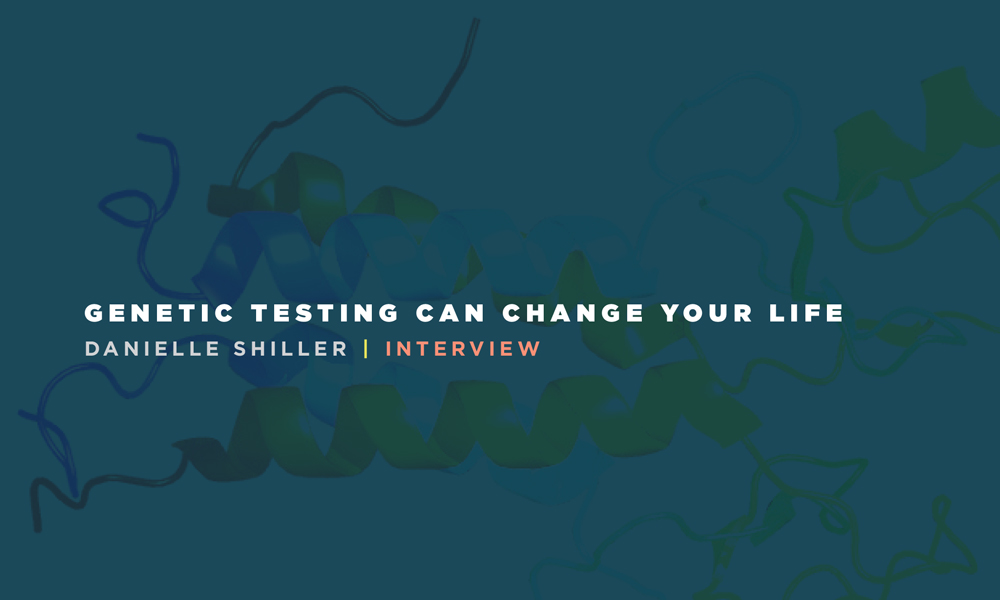Genetic Testing Can Change Your Life
The 2017 Moment Genetics Guide

Soon after Danielle “Dee-Dee” Shiller turned 40, her best friend was diagnosed with breast cancer. Then Shiller, a gynecologist and osteopath, learned that a large Jewish family in her Baltimore practice carried the BRCA gene mutation but had no history of breast cancer. “I began to feel I needed to do more than screen mammograms in my community,” she says. Shiller decided to become an advocate for genetic testing, speaking regularly to physicians, at synagogues, JCCs and people’s homes. Her message is a positive one: With education and guidance, each patient and family has the chance to change their destiny.
You believe that genetic testing can change a person’s destiny. How?
In the old days, an Ashkenazi Jewish family with breast or ovarian cancer in the family would say, “Make sure you have your children early because you never know when that breast cancer will come.” Now that we know a lot more about the BRCA gene and cancer genomics, we can address a person and his or her family’s risk of cancer and take preventive measures. So instead of living in fear, they are living in power. That’s a beautiful thing.
You say you take a holistic approach to medicine. What would that mean for someone with the BRCA gene mutation?
The best way to look at it holistically is to understand who this person is. The management of a BRCA patient is in the context of who they are and where they are in their life cycle. Are they still having children? Have they completed having children? Are they post-menopausal? In addition to all the physical issues and increased risk of cancer, it is very important to realize that it’s not just a gene, it’s not just one thing. I always ask patients, “How can I protect you at this point in life?” What is the psychological impact on you right now? And we even discuss other things that can reduce their risk overall, such as diet, weight loss and exercise.
How do we get men more aware of the risks of breast cancer?
The BRCA gene is carried on both male and female sides. If a woman has breast cancer and the BRCA gene, it could have come from either side. It’s a dominant gene and only requires one parent for it to be transmitted. Current insurance guidelines in the United States do not grant coverage to men for BRCA testing unless there is a direct relative who has the gene or breast cancer. Also, the current recommendations for males who carry the BRCA gene by the National Comprehensive Cancer Network and other medical societies are vague. These men, however, have a much higher risk than the general population of breast, prostate and pancreatic cancers. Compare this to Israel, which has decided that all men and women should be tested for the BRCA gene, regardless of personal and family history, so that they can be more proactive.
Do you believe that breast cancer can be eradicated in the Jewish community?
I don’t believe it can be fully eradicated. But we can probably get the carrier rate down from one in 40 Ashkenazi Jews to one in 250 in 20 years. The reason would be something called pre-implantation genetic testing, which allows us to choose embryos that don’t carry the BRCA mutations, thus stopping it in the next generation. If you’re Jewish that is like, “Wow, I can’t believe we can change our destiny.” It actually gives me chills. The insurance coverage around pre-implantation testing is pretty good now.
How does genetic testing work with health coverage?
Now, preventive genetic testing is a part of the Affordable Care Act (ACA). So the test has become easily available, cheap and rapid. Should the ACA go away, there is something called the Genetic Information Nondiscrimination Act that protects a patient who is genetically positive for a disease from being denied health coverage or categorized as having a preexisting condition.

One thought on “Genetic Testing Can Change Your Life”
Wow-
Kudos to Dr Schiller for the important work she is doing.
We are living in incredible times.